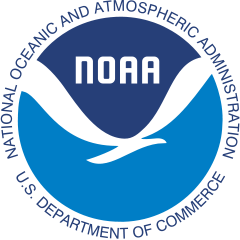October 14th, 2021

Honoring his contributions to the advancement of physics, the American Physical Society (APS) elected NOAA Climate Scientist V. “Ram” Ramaswamy among its 2021 Fellows.
The APS Fellowship Program recognizes members who have made exceptional contributions in physics research, important applications of physics, leadership in or service to physics, or physics education.
As Director of the Geophysical Fluid Dynamics Laboratory in Princeton since 2008, Ramaswamy has helped guide climate science and atmospheric modeling research progress. The APS Council of Representatives specifically elected Ramaswamy for his “pioneering research on radiative transfer in the climate system, especially regarding the impacts of anthropogenic changes in carbon dioxide and ozone on stratospheric dynamics, and the effects of aerosols on tropospheric temperatures and the hydrological cycle.”
Craig McLean, NOAA’s assistant administrator for Oceanic and Atmospheric Research, said Ramaswamy is only the third NOAA climate scientist ever elected – including Dan Albritton in 1980 and Fred Fehsenfeld in 1974.
From 1992 to 2021, Ramaswamy has been a Lead Author, Coordinating Lead Author, or Review Editor for each of the major assessment reports of the Intergovernmental Panel for Climate Change. He has also been a Coordinating Lead Author on the World Meteorological Organization assessments on stratospheric ozone and climate, and the first U.S. Climate Change Science Program (Global Change Research Program) assessment.
Michael Oppenheimer, the Albert G. Milbank Professor of Geosciences and International Affairs in Princeton University’s School of Public and International Affairs and the High Meadows Environmental Institute, said Ramaswamy’s contributions toward advancing climate science span decades.
“Only a tiny percentage of American Physical Society members are so honored each year, generally for specific, original contributions to the Earth sciences,” Oppenheimer said. “In addition, having collaborated with Ram for over 25 years on international ozone and climate assessments, I can tell you that Ram’s deep grasp of radiative processes enabled many of the key, policy relevant findings of those assessments.”
William Collins, UC Berkeley professor and director of the Climate and Ecosystem Sciences Division, said Ramaswamy’s fellowship was the only nomination from the Topical Group on the Physics of Climate within the American Physical Society.
“Ram’s unique blend of outstanding scientific scholarship and exceptional scientific leadership has led to profound advances in our knowledge of the Earth’s climate system, the processes governing it, and our ability to make trustworthy weather and climate predictions for the benefit of society,” Collins said. “His scientific research and leadership have enabled the U.S. to develop the world’s most creative, unified modeling system for weather and climate applications.”
Collins said he is especially thrilled because Ramaswamy served as his mentor, friend and colleague ever since the beginning of his career at NCAR.
The historical record for named APS Fellows goes back to 1921. This year, 155 Fellows were selected for their contributions to science in an announcement Wednesday.
GFDL has pioneered much of the world’s research on the modeling of climate change since 1955. Scientists at the lab develop and use Earth system models and computer simulations to improve the understanding and prediction of all aspects of the climate system. The research focuses on model-building relevant for society, hurricane research, weather and ocean prediction, seasonal forecasting, as well as understanding regional and global climate change.


